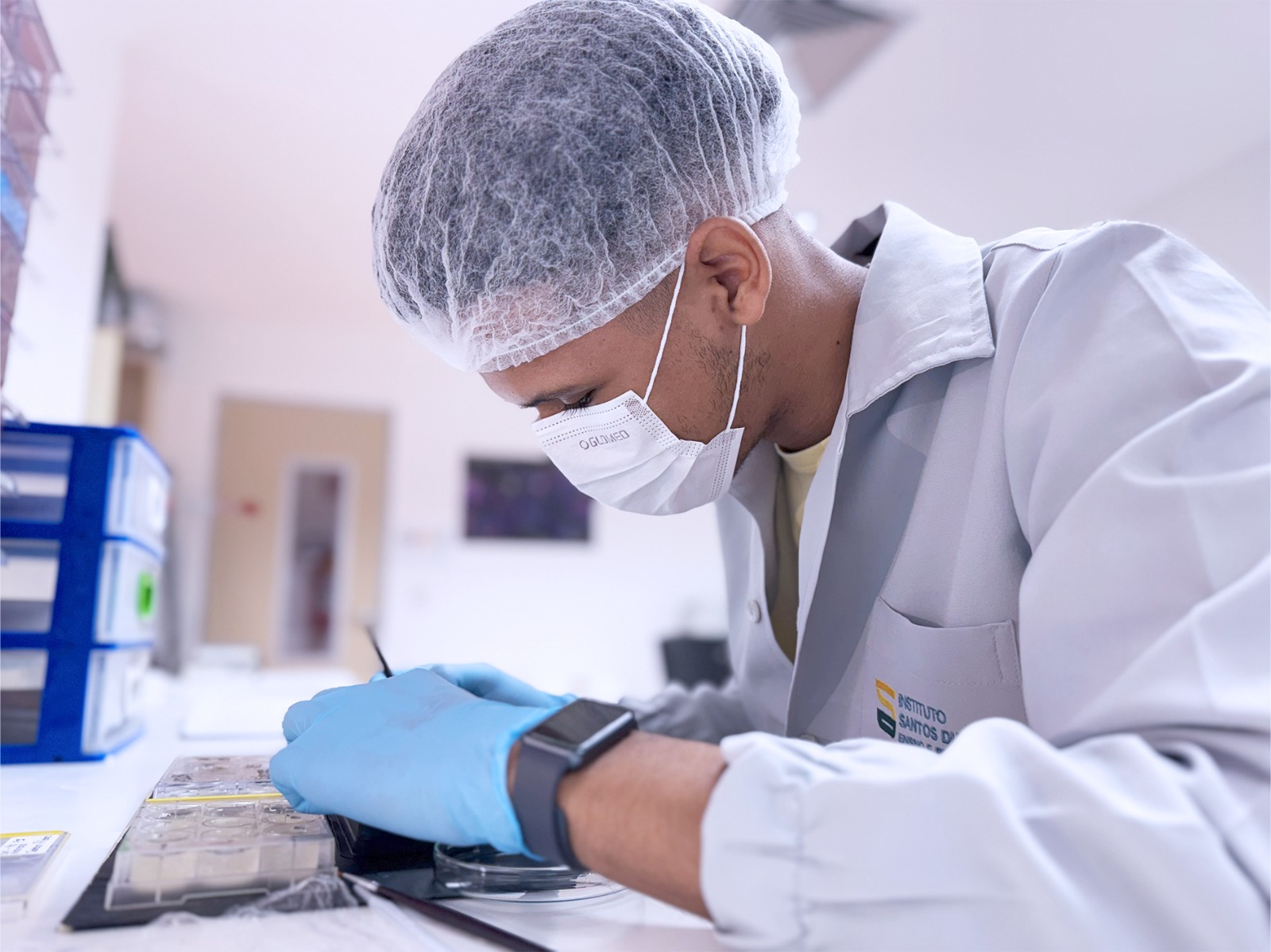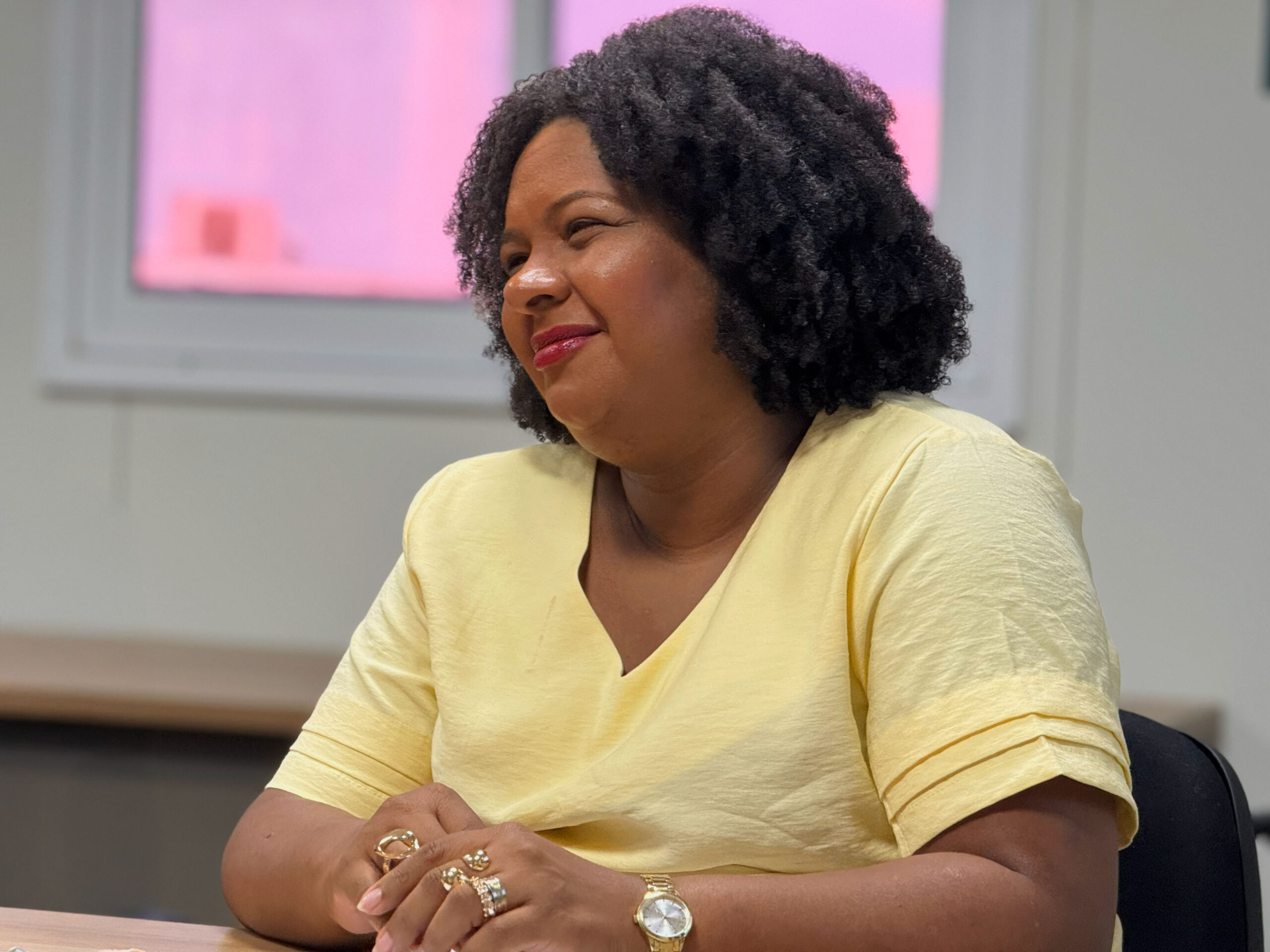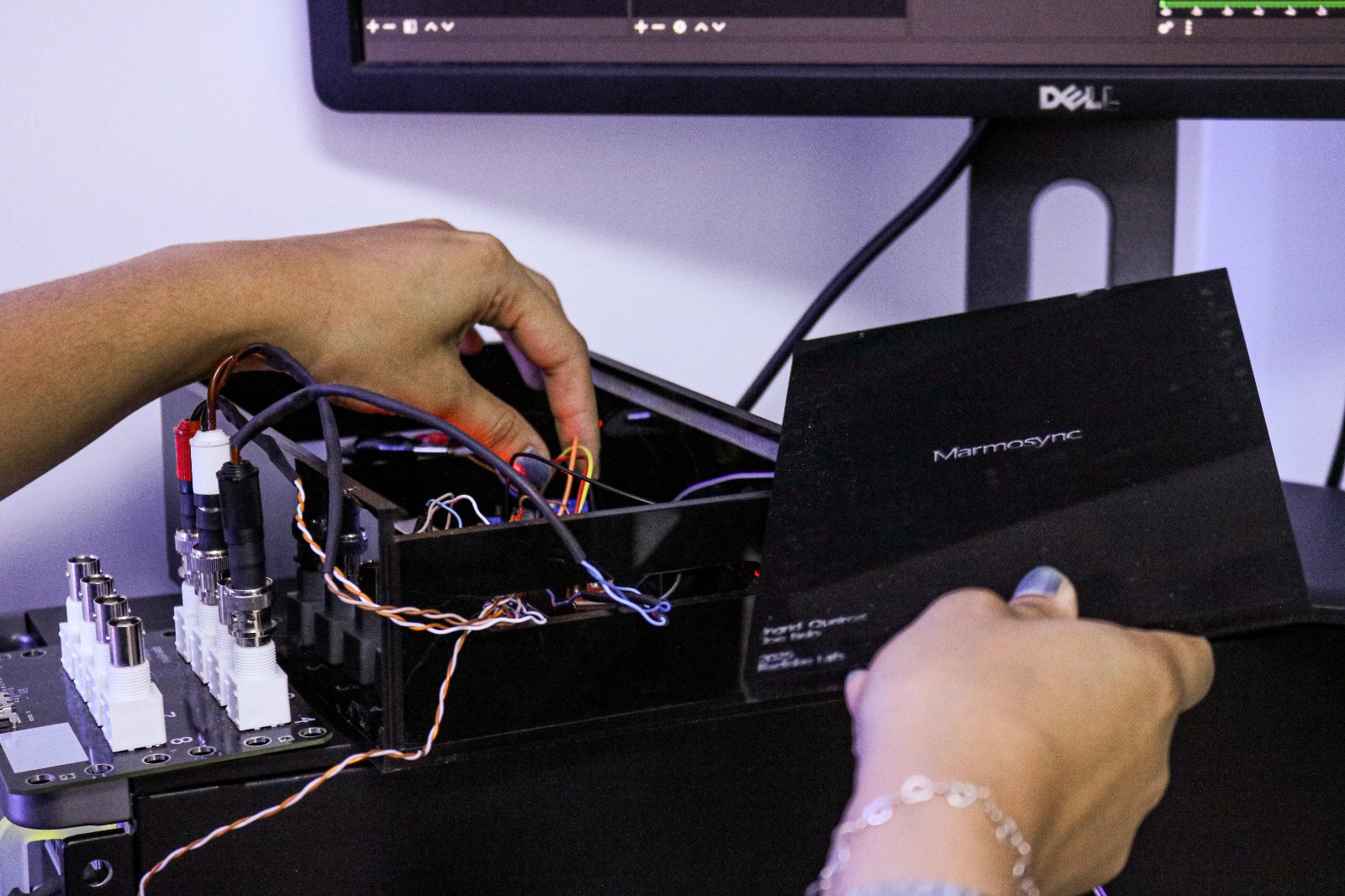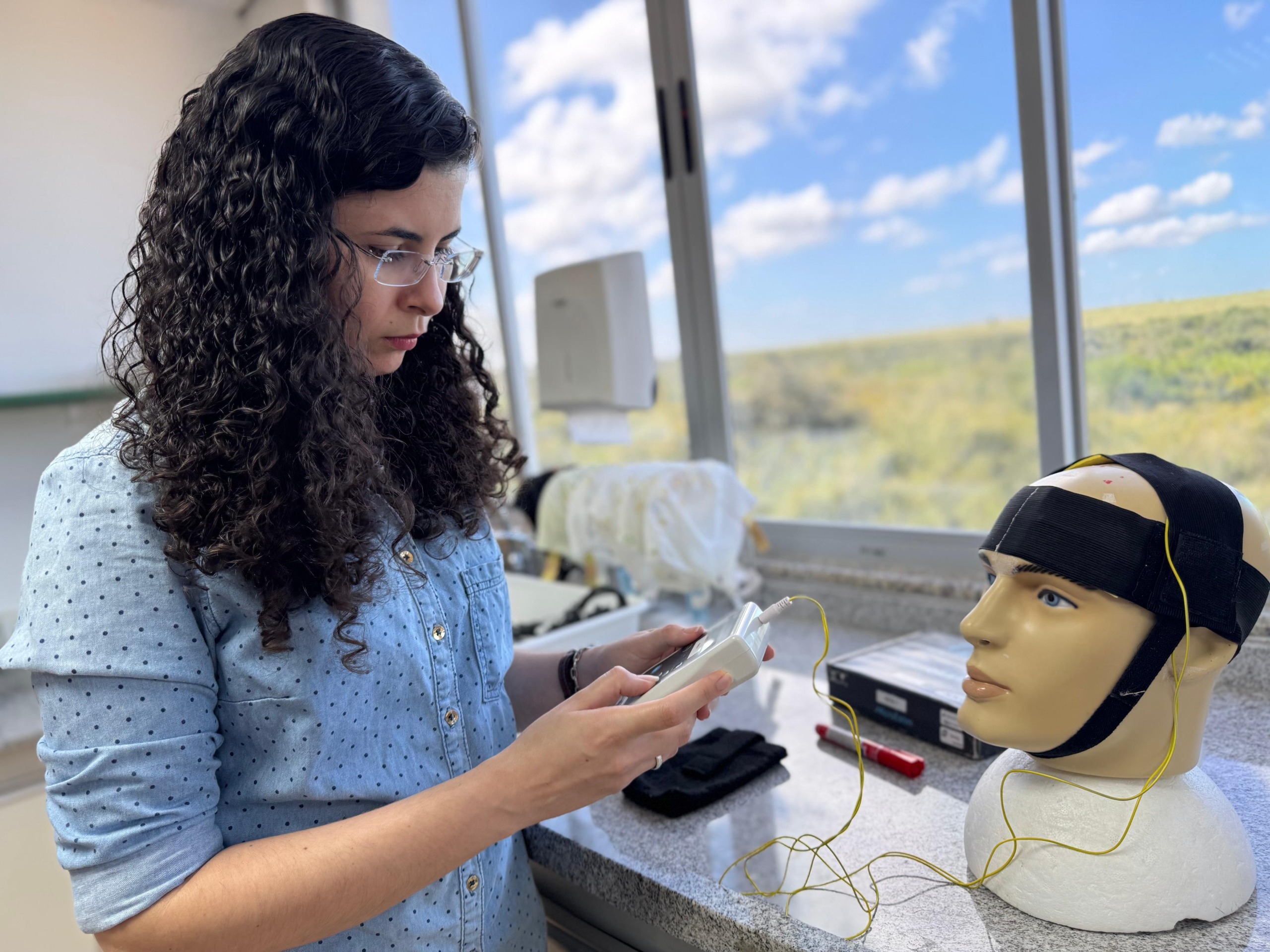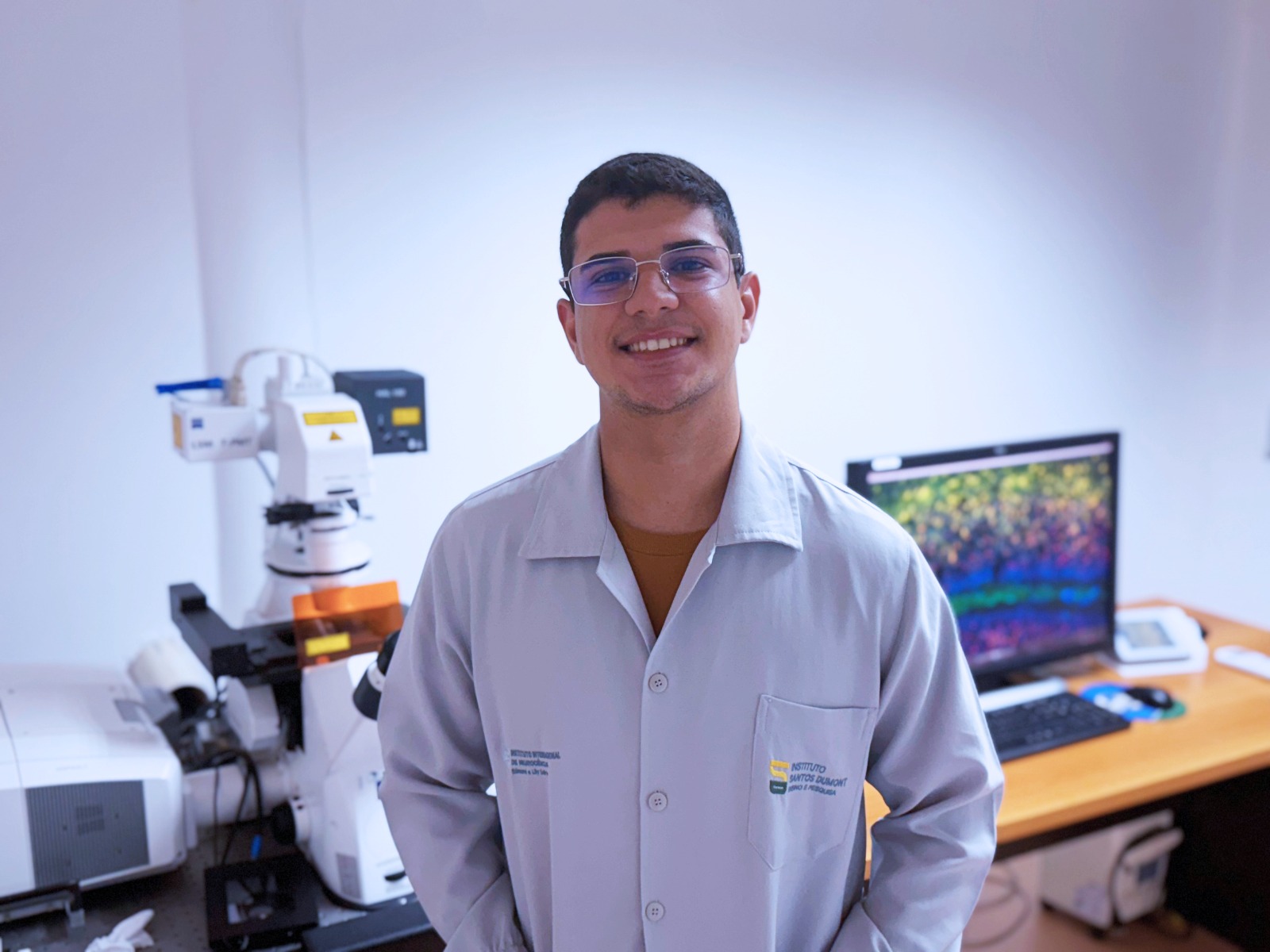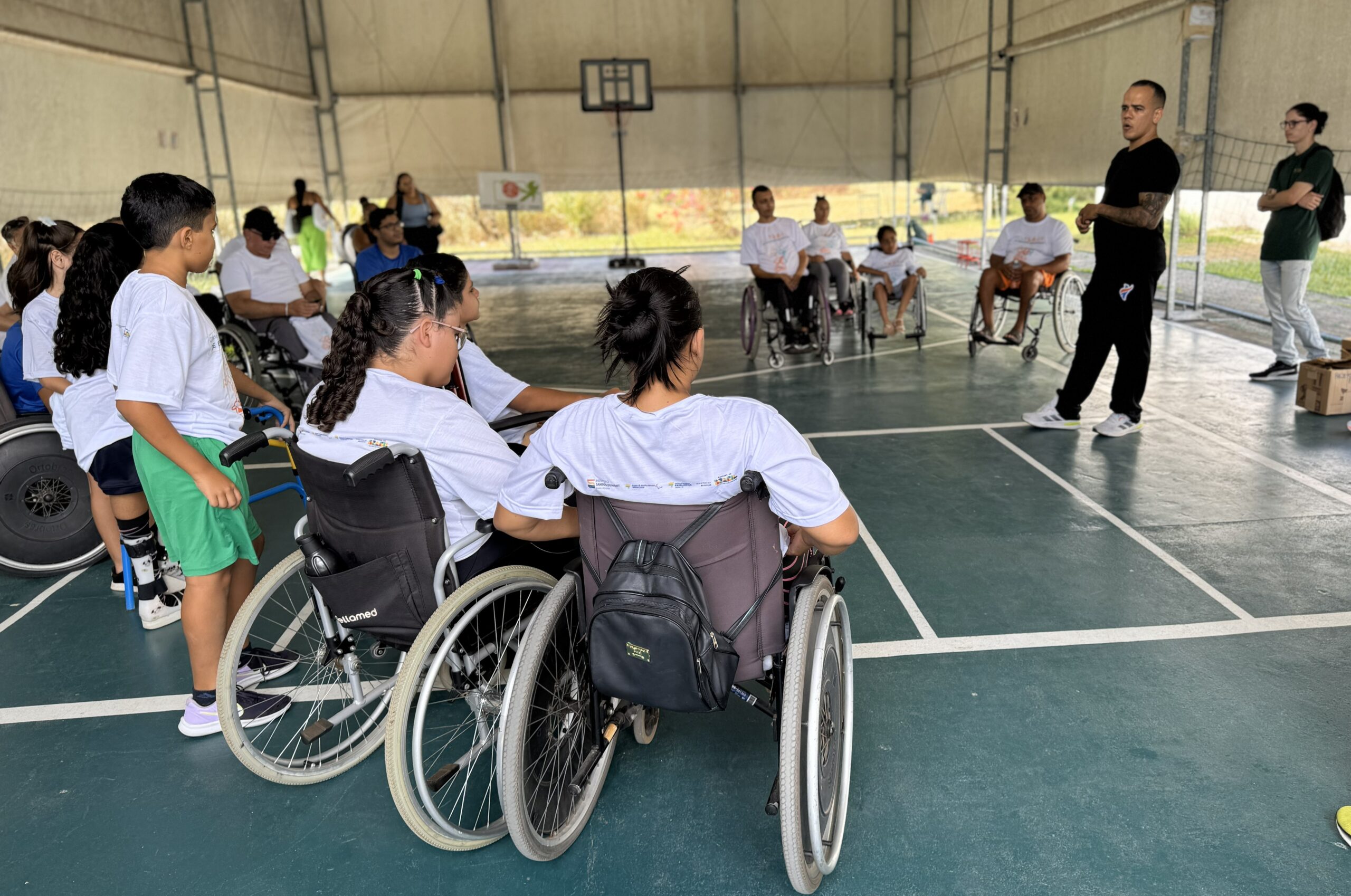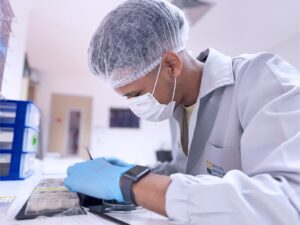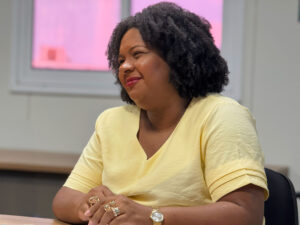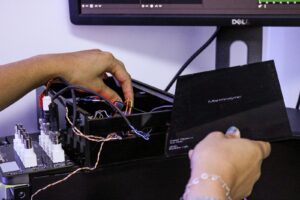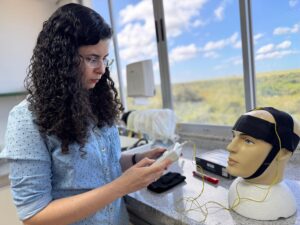Movie session helps in the socialization of children with autism
13/04/2017
Text and photos: Ariane Mondo – Ascom ISD

On April 8th, in a shopping center in Natal (RN), the darkness of the cinema gave way to a brighter environment and the sound was not as loud, in a session adapted especially for children with disabilities. Autistic Spectrum Disorder (ASD), who watched the movie Trolls. The project of cinema sessions for autistic children, organized by the “Grupo Mães Corujas Batalhadoras” since 2016, is a success and for the second time the Santos Dumont Institute (ISD) supports the initiative through an internal campaign among its employees. With the mobilization of employees, it was possible to purchase tickets and take 50 people to the cinema, including children and guardians, who are users of the Multidisciplinary Autism Spectrum Care Service (SEMEA), of Anita Garibaldi Health Education and Research Center (CEPS), in Macaíba (RN).
Anthony Ferreira, aged 5, accompanied at CEPS for about a year and a half, went to the cinema for the first time in his life and according to his father, Antonio Ferreira, the boy approved the experience: “It was really good! He watched half the film and the other half he wanted to mess around.”

Gabriela Vasconcelos Alves, mother of Murilo, 7 years old, also took her son to the cinema for the first time and joining the activity was not immediate. After waiting for some time and with patience, the boy was taken to the exhibition room and enjoyed the new experience. The mother reported: “For me, these sessions would be monthly, because it is a way of integrating him into society and showing what the world is like for this child, who will one day grow up”.
Samantha Maranhão, multidisciplinary preceptor and neuropsychologist at SEMEA/CEPS, states that this event is very good, because it is an opportunity for children to have contact with each other and experience a different space, because many people in Macaíba do not have access to cinema. “The journey to get to Natal broadens these children’s horizons and allows them to have different experiences beyond the context in which they are inserted,” she says.
The neuropsychologist sees several benefits in this type of activity, such as socialization, expanding experiences in different contexts and exchanging experiences between parents. She comments: “Most of the children seen in Macaíba were already here for the second time and those responsible commented that the children liked the second film they watched more. I think it could be an adaptation to the place, the situation, as they spent longer watching the film, living this experience. For them, it is important to repeat an experience that they don’t always have.”
SEMEA

SEMEA was created by CEPS in 2015 and offers care provided by professionals from various areas of health. Currently, SEMEA receives an average of 80 children from Macaíba and neighboring municipalities and since 2017, through SUS, in partnership with the Escola Agrícola de Jundiaí (EAJ/UFRN), it has been offering Potiguar Riding Therapy, a project that uses horse therapy as a complementary possibility for monitoring children cared for at CEPS (more information in the article available HERE).
The nomenclature Autism Spectrum Disorder (ASD) was given because today it is known that autism has different levels of intensity. The same symptom can occur in a severe, mild or moderate form, depending on the child's age, how much stimulation he or she receives and the appropriate intervention. According to medical literature, ASD is 'a group of disorders characterized by a shared spectrum of qualitative impairments in communication and social interaction, associated with repetitive behaviors and restricted interests'.
The SEMEA patients' trip to the cinema was carried out thanks to the support of the company Natal Vans.



